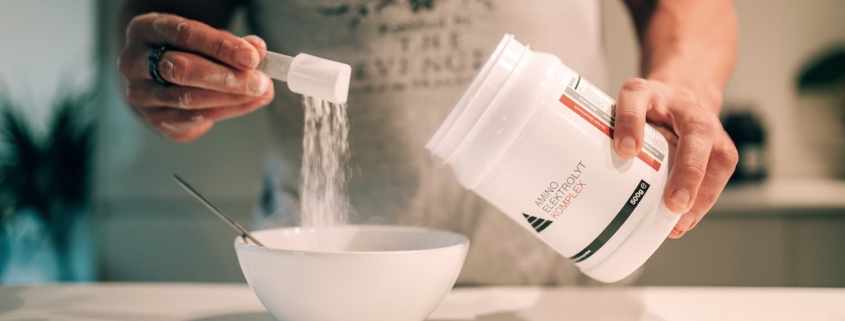Have you ever wondered why your American branded BCAA powdered drink has ‘lower’ calories than others? Or even ZERO calories listed on the nutrition panel? Well here’s an episode of Myth Busters you don’t want to miss! First of all…
What are BCAAs?
BCAAs, or Branched Chain Amino Acids, are amino acids which have a non-continuous link of carbon bonds (i.e. a central carbon atom bound to three or more carbon atoms).
The three BCAAs are leucine, isoleucine and valine, all of which are classed as essential amino acids, which means that they must be ingested by humans since they cannot be made by our bodies.
Unlike whole proteins or most other amino acids, BCAAs are not metabolised by the liver directly so are transported to muscle tissues where they are oxidized by the muscles.
Do BCAAs have calories?
Yes, they absolutely do!
According to the American Journal of Clinical Nutrition, BCAAs have the following approximate caloric values:
Leucine: 4.65 calories per gram
Isoleucine: 4.65 calories per gram
Valine: 4.64 calories per gram
With the above caloric values in mind, this means that one gram of BCAAs at the typical 2:1:1 ratio of leucine, isoleucine and valine, respectively, contains around 4.65 calories, while 10 grams of BCAAs contain around 46.5 calories.
Why is my BCAA supplement labelled as having 0 calories?
Having established that BCAAs do, in fact, contain calories, it makes sense that your next question is:
“If BCAAs have calories, then why does the label on my BCAA supplement state 0 calories?”
The reason most supplement manufacturers don’t list the calories from BCAAs in their products is simply because:
- The FDA regulations state that supplement manufacturers can’t declare the protein content of a product when this only contains individual amino acids.
- The FDA regulations allow supplement manufacturers to calculate the caloric content of their products using a number of methods, including the Atwater method, which involves adding up the calories from protein (4 kcal/g), carbs (4 kcal/gram) and fats (9 kcal/gram), thus omitting the calories from the non-listed proteins.
So there you have it. Your aminos from America do contain calories as the BCAAs are just a source of protein.


